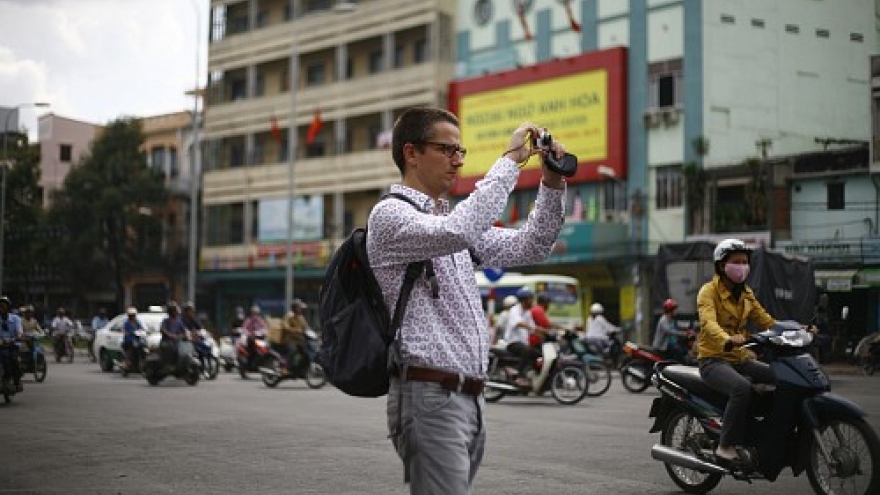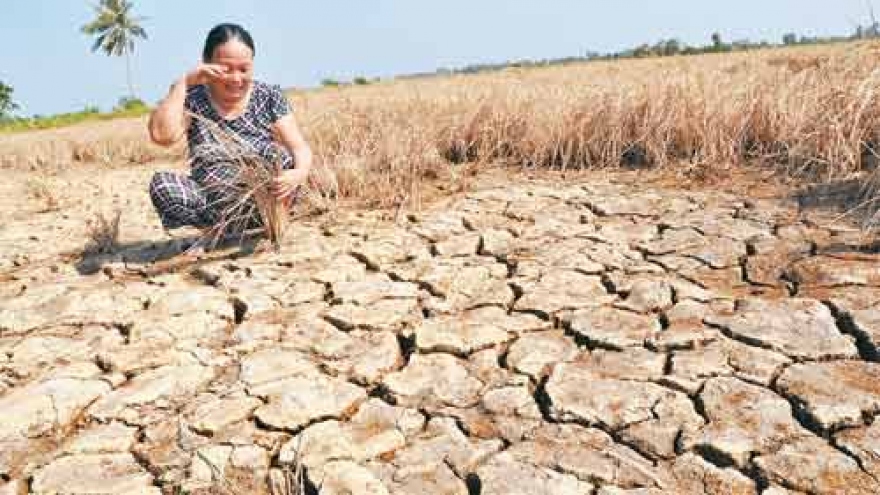Exhibition highlights women’s role in disasters
Disfigured kitchenware, stained and wet books and flash lights are among the items left behind by fierce typhoons that have hit in the central region of the country.
The exhibition reviews the project entitled “Strengthening women’s capacity in disaster risk reduction to cope with climate change,” launched by the Vietnam Women’s Union and UN Women in 2013.
Tran Thi Thao, 44, from Hung Trach commune in Quang Binh province, is a single mother of three. Her family is very poor and suffers heavy losses in every typhoon that hits their area. When the rainy season comes, they always live in fear that the next storm or flood would sweep away their house and crops.
Thao’s daughter Pham Thi Hien, 22, remembers the typhoon that suddenly hit their place at midnight three years ago.
“My mother and I tried to store some of our things and climbed up to the roof to be safe as the water rose very quickly and we could not do anything. My mother climbed first, stretched out her hands to help me up and said, ‘Hold my hands tightly and try to climb up, otherwise you would fall down into the water and die’.
“I sat on the roof with my mother in the rain. I was cold and hungry from four to nine in the morning till the communal head came on a banana-stem raft to move us to a safe place,” she said.
 |
Thanks to the project, Thao’s knowledge about disaster preparedness has improved significantly.
She feels her family’s economic condition is also gradually becoming stable. She said the women in her village should act together to effectively reduce disaster risks.
“UN Women strives to promote women’s participation and leadership in disaster management,” Shoko Ishikawa, country representative of UN Women in Vietnam, said.
“Our effort is to ensure that women’s role is recognised and highly appreciated and their voice is heard in developing disaster risk reduction action plans at the local levels. In Vietnam, the Women’s Union has a key role in improving awareness and in making the community understand the critical role women are already playing in disaster preparedness, response and recovery,” Ishikawa said.
“Previously we had no experience in calculating the planting dates for early-maturing crops, so that we could harvest them before the storm came,” Thao said.
“However, we have now learnt to reschedule the cultivation calendar, including delaying the planting dates for peanuts and corn and advancing the planting dates for cassava. As a result, we can finish the harvesting process before the storm hits.”
Nguyen Thi Thu, Chairwoman of the Vietnam Women’s Union in Thanh Hoa commune, Quang Binh province, said 47 households belonging to the Chut ethnic group in the commune took advantage from the project.
“They are characterised as a shy wandering tribe, who do shifting cultivation, lack confidence and face difficulty in accessing information. Therefore, the Vietnam Women’s Union has taught them to plant wet rice, has provided them with different kinds of rice and vegetable seeds, and has instructed them about building and maintaining soil fertility for intensive farming as well as about diverse cropping patterns," Thu said.
"As a result, the Chut people have got used to settled cultivation and are earning more money for their family,” she added.
The exhibition will run till the end of this month at the Vietnam Women’s Museum, 36 Ly Thuong Kiet Street, Hanoi.


